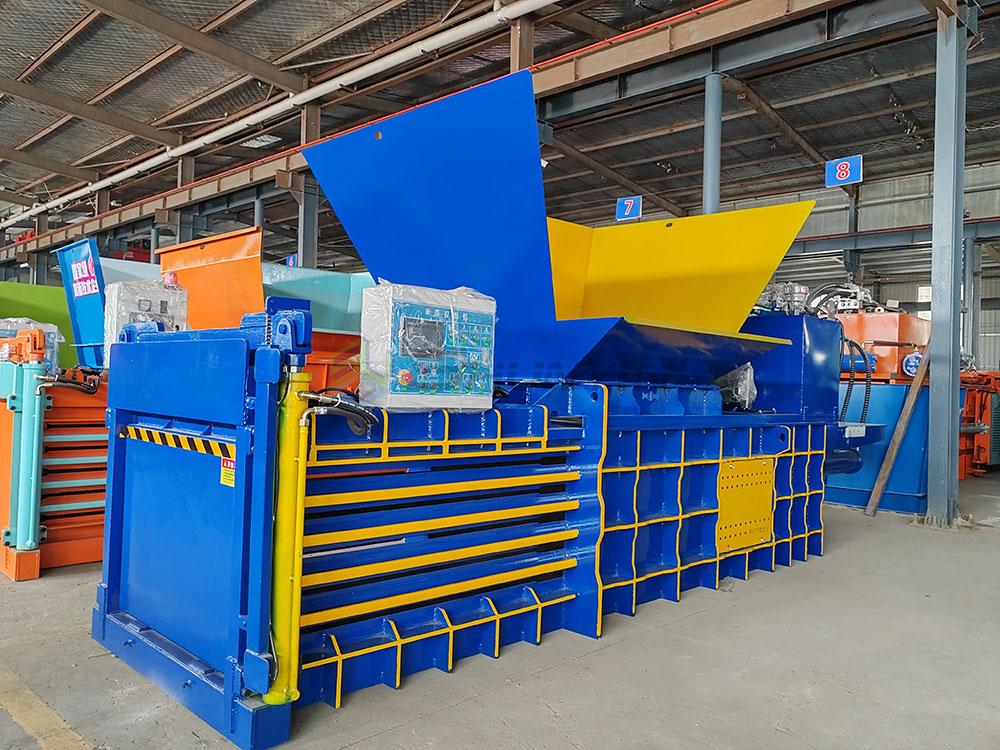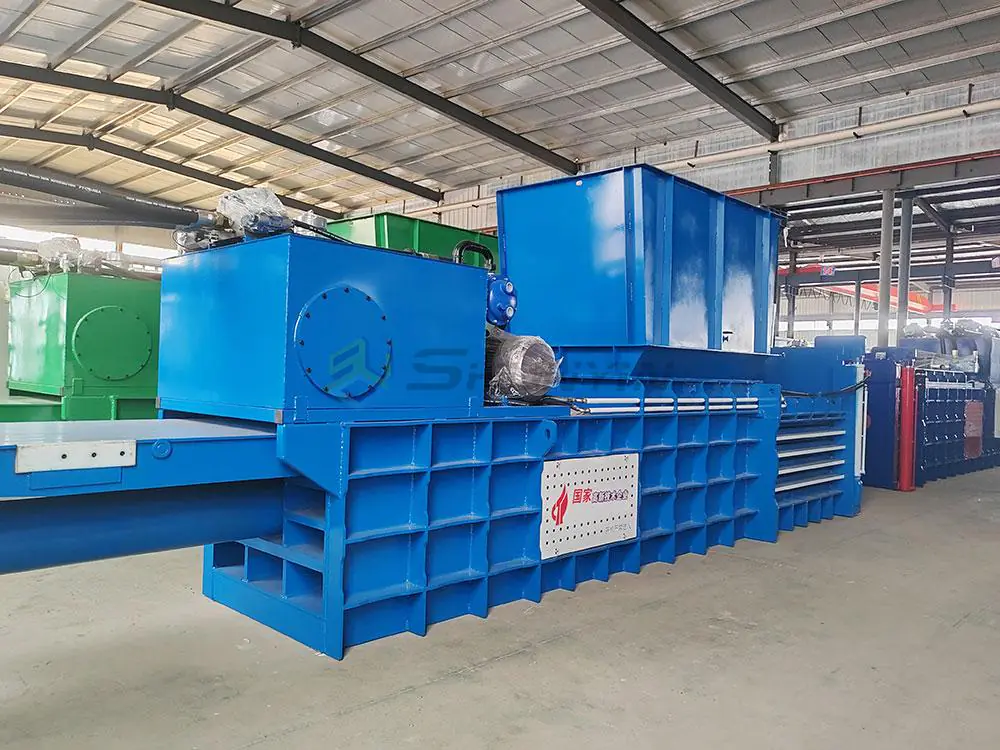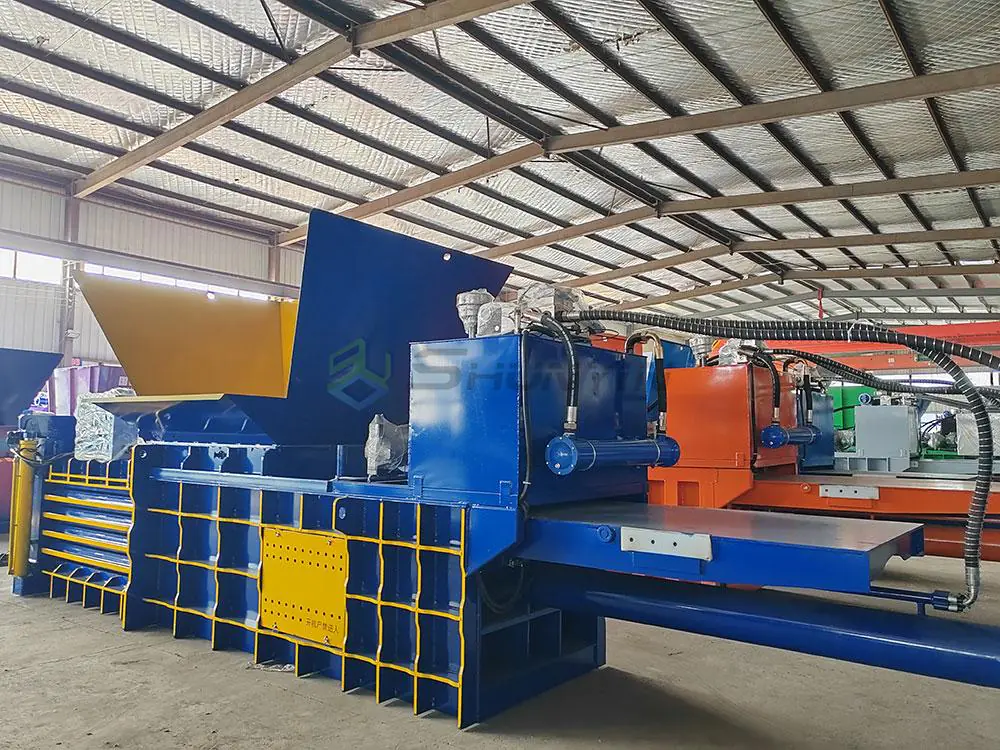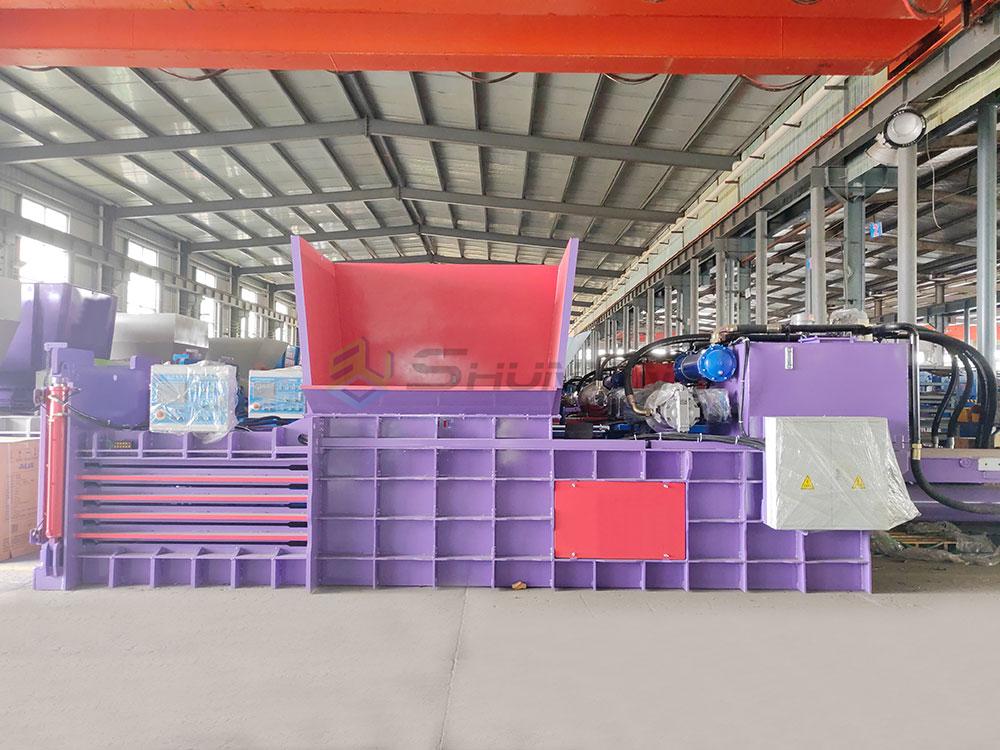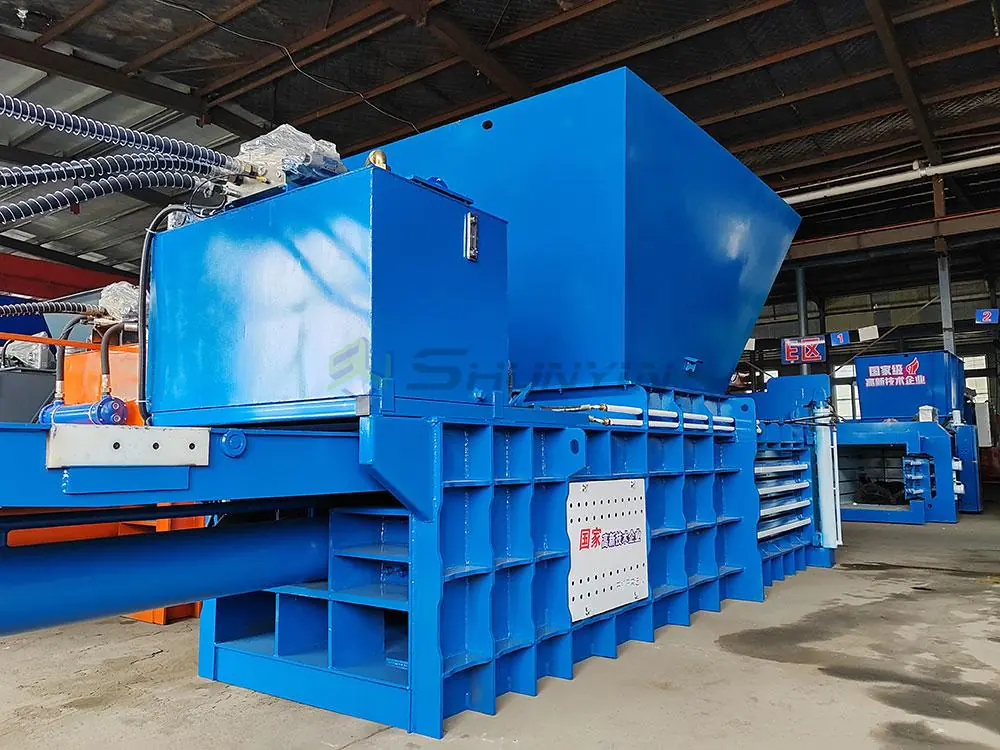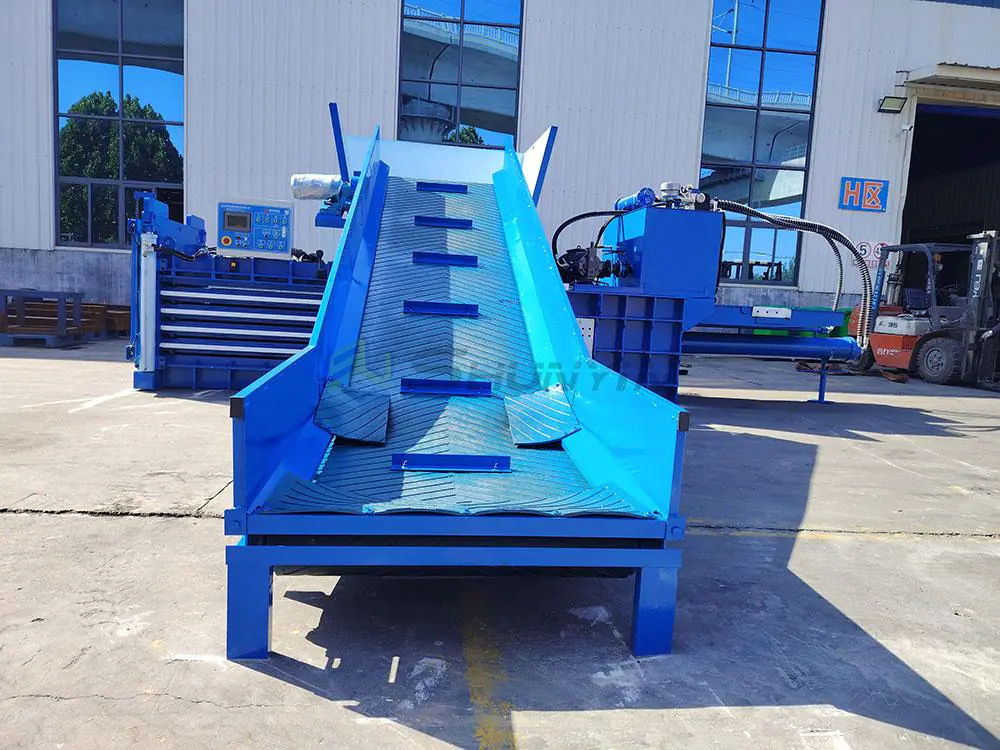
Finding the right hydraulic press baling machine can be challenging. Understanding the costs involved is essential for making an informed decision.
The price of a 100-ton hydraulic press baling machine typically ranges from $20,000 to $50,000, depending on features, brand, and customization. Factors such as automation, capacity, and material specifications can influence the final price. Always compare quotes and specifications before making a purchase decision.
When I first started looking for a hydraulic press, the variety of options and price points was overwhelming. It took time to find the perfect balance between quality and cost.
What is the most powerful hydraulic press baler in the world?
The search for the most powerful hydraulic press baler is driven by the need for efficiency and capacity in large-scale operations.
The world’s most powerful hydraulic press baler is the 150,000-ton press developed by Schuler for metalforming industries. It delivers extreme force for high-capacity industrial applications. This press is used for shaping and compacting large metal sheets, offering unmatched performance and efficiency in heavy-duty operations.

I remember attending a trade show where a 200-ton baler demonstrated its incredible capacity. It was impressive how much waste it could process in a single cycle.
Key Features of the Most Powerful Balers
High-capacity balers come with advanced features to ensure optimal performance and durability.
Specifications Table
| Feature | Description |
|---|---|
| Maximum Force | 200 tons |
| Baling Capacity | Up to 10 cubic meters per cycle |
| Automation Level | Fully automated with digital controls |
| Energy Efficiency | High-efficiency motors and hydraulics |
| Safety Features | Advanced safety protocols and sensors |
Benefits of High-Power Balers
Using a powerful baler can significantly enhance your waste management processes.
- Increased Efficiency: Handles larger volumes quickly.
- Durability: Built to withstand heavy use and harsh conditions.
- Cost-Effective: Reduces labor costs by automating processes.
- Versatility: Can process a wide range of materials, from cardboard to metals.
What are industrial balers?
Industrial balers are essential equipment in large-scale waste management and recycling operations, designed to compress various materials into compact bales.
Industrial balers are machines used to compress and bundle materials like cardboard, plastic, paper, and metal. They help optimize waste management by reducing volume, improving recycling efficiency, and enabling easier transportation. Balers come in various types, including vertical, horizontal, and automatic models, tailored for different industrial needs.

When I upgraded to an industrial baler, the improvement in our waste processing efficiency was remarkable. It streamlined our operations and reduced storage space needs.
Types of Industrial Balers
There are several types of industrial balers, each suited for different materials and operational needs.
Balers Comparison Table
| Type | Suitable Materials | Typical Capacity | Key Features |
|---|---|---|---|
| Horizontal Balers | Cardboard, plastics | 500-1000 kg/bale | High compression ratio, automation |
| Vertical Balers | Mixed recyclables, metals | 300-700 kg/bale | Space-efficient, easy maintenance |
| Compactor Balers | Large volumes, bulky items | 1000+ kg/bale | Heavy-duty construction, robust |
Applications of Industrial Balers
Industrial balers are used across various sectors to enhance efficiency and sustainability.
- Manufacturing Plants: Streamlining waste management.
- Recycling Centers: Facilitating the processing of recyclable materials.
- Commercial Facilities: Managing waste from large offices and malls.
- Construction Sites: Compressing bulky materials for easier transport.
What are recycling balers and waste balers?
Recycling balers and waste balers play a crucial role in sustainable waste management by compacting materials for recycling and disposal.
Recycling balers and waste balers are machines used to compress recyclable materials like paper, cardboard, and plastics into compact bales. They improve waste management by reducing volume, making transportation and storage more efficient, and supporting recycling efforts in industries, municipalities, and recycling centers.

Implementing recycling and waste balers in my operations significantly improved our recycling rates and reduced overall waste disposal costs.
Differences Between Recycling and Waste Balers
Understanding the distinction helps in selecting the right baler for specific needs.
Comparison Table
| Feature | Recycling Balers | Waste Balers |
|---|---|---|
| Primary Function | Compress recyclable materials | Reduce volume of general waste |
| Material Types | Paper, plastics, metals | Mixed waste, non-recyclables |
| Bale Quality | Neat, uniform bales for recycling | Compact bales for disposal |
| Automation Features | Advanced sorting and compression options | Basic compression functions |
Advantages of Using Recycling and Waste Balers
Integrating balers into waste management systems offers several benefits.
- Space Savings: Reduces the volume of waste, saving storage space.
- Cost Reduction: Lowers transportation and disposal costs.
- Environmental Impact: Promotes recycling and reduces landfill usage.
- Operational Efficiency: Streamlines waste handling processes.
Where can I buy cardboard balers for sale?
Purchasing a reliable cardboard baler involves choosing reputable suppliers that offer quality machines and support.
Cardboard balers are available for sale through various suppliers, including manufacturers, online platforms like Alibaba, and specialized equipment dealers. You can find new or used models at competitive prices, ensuring suitability for your business needs. It’s important to check certifications, warranty, and customer reviews before purchasing.

I found that buying directly from manufacturers provided better customization options and after-sales support, ensuring the baler met all our specific needs.
Top Suppliers of Cardboard Balers
Selecting the right supplier ensures you receive a durable and efficient baler.
Suppliers Comparison Table
| Supplier | Location | Product Range | Key Strengths |
|---|---|---|---|
| Shunyin | China | Horizontal & vertical balers | Customizable, competitive pricing |
| Puyang | China | Various balers | Established reputation, support |
| Huake | China | High-capacity balers | Advanced technology, durability |
| Alibaba | Global | Multiple brands and models | Wide selection, competitive prices |
Factors to Consider When Buying
Choosing the right baler involves evaluating several key aspects.
- Quality and Durability: Ensure the baler is built to last.
- Customization Options: Ability to tailor the baler to specific needs.
- After-Sales Support: Reliable customer service and maintenance support.
- Price and Value: Balance between cost and the features offered.
- Supplier Reputation: Choose suppliers with positive reviews and proven track records.
Purchasing Process
The process of buying a cardboard baler typically involves the following steps:
- Identify Needs: Determine the specific requirements based on volume and material types.
- Research Suppliers: Look for reputable suppliers with the desired features.
- Request Quotes: Obtain pricing and customization options from multiple suppliers.
- Evaluate Offers: Compare based on quality, price, and support services.
- Make a Purchase: Choose the best option and complete the transaction.
- Installation and Training: Ensure proper setup and training for optimal use.
Conclusion
Investing in a 100 ton hydraulic press baling machine offers significant benefits in efficiency and cost savings, ensuring your waste management processes are top-notch.


